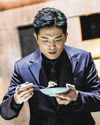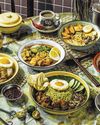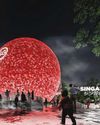
When Huawei, the Chinese tech giant, releases its latest smartphone in November, techies will strip it down to figure out how it works. The semiconductors powering the Mate 70, as the device is called, will reveal how much progress China has made in building its own chips and breaking its reliance on foreign technology. But the software in the phone may prove more important than the hardware. Huawei is expected to install HarmonyOS Next, its new homemade operating system, on the devices. This would be China's first clean break with the Western-backed systems on which it and the rest of the world rely.
China's government wants the country to become technologically self-sufficient in everything from fertilizer and passenger jets to chips and payments networks. It views Western chokeholds on critical technologies as national security risks, which could prove especially dangerous to China in a conflict. Huawei's efforts to support Chinese self-sufficiency have lately focused on semiconductors. But the country is still overwhelmingly reliant on American mobile operating systems. Android, owned by Google, and iOS, Apple's system, power about 98 per cent of smartphones globally, including almost all of those in China.
This story is from the November 07, 2024 edition of The Straits Times.
Start your 7-day Magzter GOLD free trial to access thousands of curated premium stories, and 9,000+ magazines and newspapers.
Already a subscriber ? Sign In
This story is from the November 07, 2024 edition of The Straits Times.
Start your 7-day Magzter GOLD free trial to access thousands of curated premium stories, and 9,000+ magazines and newspapers.
Already a subscriber? Sign In

Japan's True Blue Tradition
Call it an antidote to fast fashion. Japanese jeans hand-dyed with natural indigo and weaved on a clackety vintage loom, then sold at a premium to global denim connoisseurs.
6 easy dishes to pack for lunch
Nutritionists and food content creators suggest these healthy and convenient recipes

Don't cross Culinary Class Wars star Anh Sung-jae of three-Michelin-starred Mosu
On an early episode of Netflix's hit reality cooking show Culinary Class Wars (2024), chef Anh Sung-jae stood in a warehouse filled with makeshift cooking stations and considered the plate in front of him: a rainbow palette of handmade pastas, purees and delicately cooked seafood. On top was a smattering of flower petals.

Emerald Hill to make Netflix debut
Emerald Hill looks set to be the must-watch local blockbuster series of 2025.

Refreshed museums in SG60 arts
A timely slate of refreshed spaces and new programmes at Singapore's arts and cultural institutions will be launched in 2025, wooing audiences with a different Singapore story as the nation gears up to mark 60 years of independence.

Going casual to woo fickle diners
Serious artwork on the wall. Bespoke crockery on cloth-covered tables. A fine wine list. Eye-watering menu prices. Just don't call it a fine-dining restaurant.

Smartwatches Make Healthcare Smarter
From tracking heart rate to steps taken to sleep quality, smartwatches and fitness trackers can generate biometric data about the people using them.

Quality, not quantity, rules the superhero game
In 2025, the big studios are rolling up their sleeves to tackle a disease plaguing the box office – superhero fatigue.

Big-name musicals to hit the stage
Soothing melodies and soaring high notes are set to fill the air, as the coming year brings along a host of musicals to the Lion City.

Celebrating design with SG60, new hotels and theme parks
Architecture and urban design take centre stage in 2025, with marquee events such as a year-long celebration of Singapore's 60th year of independence (SG60) and launches of Sentosa attractions to enhance the destination's \"islander allure\".